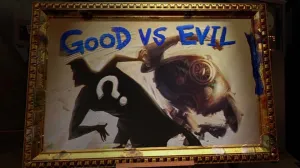The Academy of Motion Picture Arts and Sciences has officially weighed in on the use of generative artificial intelligence in filmmaking, adding a new rule clarification that addresses the rapidly evolving technology head-on. In a somewhat surprising move given the recent industry turmoil over AI, the Oscars’ new language states that the mere use of AI tools will not automatically disqualify a film from consideration. However, the Academy firmly emphasizes that its judgment will prioritize human creative contributions. This new guideline lands squarely in the middle of a complex and often contentious debate about AI’s role in Hollywood, a conversation amplified by 2023’s historic labor actions by writers and actors who sought protections against the technology.
Videos by ComicBook.com
“With regard to Generative Artificial Intelligence and other digital tools used in the making of the film, the tools neither help nor harm the chances of achieving a nomination,” the updated Oscars rule states clearly. “The Academy and each branch will judge the achievement, taking into account the degree to which a human was at the heart of the creative authorship when choosing which movie to award.” This official language indicates that incorporating AI for tasks like visual effects generation, script analysis, or even voice modification won’t, in itself, prevent a film from being recognized. The crucial determining factor, however, lies in the Academy reserving the right for its voters to evaluate how AI was used and to prioritize works where human vision and execution remain central.
[RELATED: Marvel Responds to Accusations of AI Use in Fantastic Four: First Steps Poster]
By stating AI tools “neither help nor harm” eligibility, the Academy Awards’ new ruling avoids outright prohibition and acknowledges the technology’s growing integration into the filmmaking process. This could be interpreted as a pragmatic approach, recognizing AI’s potential utility in areas like VFX, post-production, or even pre-visualization, while attempting to sidestep the logistical nightmare of policing every instance of AI assistance. However, the critical addendum focusing on the “degree to which a human was at the heart of the creative authorship” firmly plants the Academy’s flag in favor of human-driven artistry. It suggests that while tools evolve, the standard for an Oscar-worthy achievement still rests on human vision, decision-making, and execution.
The Oscars Prioritize Human Authorship in the AI Era

This Academy’s official stance arrives less than two years after AI became a major flashpoint in the dual Hollywood strikes of 2023. Both the Writers Guild of America (WGA) and the Screen Actors Guild-American Federation of Television and Radio Artists (SAG-AFTRA) initiated lengthy strikes, with protections against AI being core demands. Writers sought guarantees that AI wouldn’t be used to write or rewrite literary material, undermining their credits and compensation, and that their scripts wouldn’t be used to train AI models without permission. Actors fought for strict consent and compensation requirements regarding the creation and use of “digital replicas” — AI-generated versions of their likeness or voice — fearing replacement by digital doubles, particularly for background performers. The resulting agreements established significant guardrails, including consent protocols and compensation structures, reflecting deep-seated anxieties about AI’s potential to devalue creative labor. Still, concerns abound regarding job displacement, not just for writers and actors but potentially for concept artists, VFX professionals, editors, and composers.
The controversy extends beyond labor disputes into fundamental questions about creativity, originality, and ethics. AI tools trained on vast datasets of existing work raise complex copyright issues and questions about what constitutes original creation versus sophisticated mimicry. While some champion AI as a democratizing tool that can lower production costs and empower independent creators, others fear it encourages homogenization and undermines the unique perspectives born from human experience. Plus, there’s a noticeable difference in independent creators using AI to reduce costs and multibillion-dollar companies appropriating the technology to get rid of thousands of workers.
What do you think of the Academy’s new rule regarding AI? Does it strike the right balance? Join the discussion in the comments.








